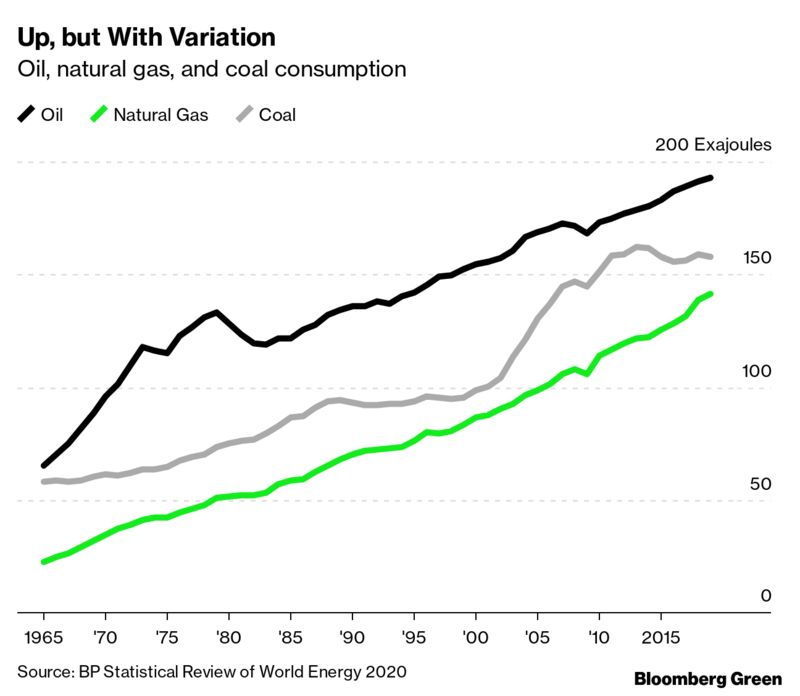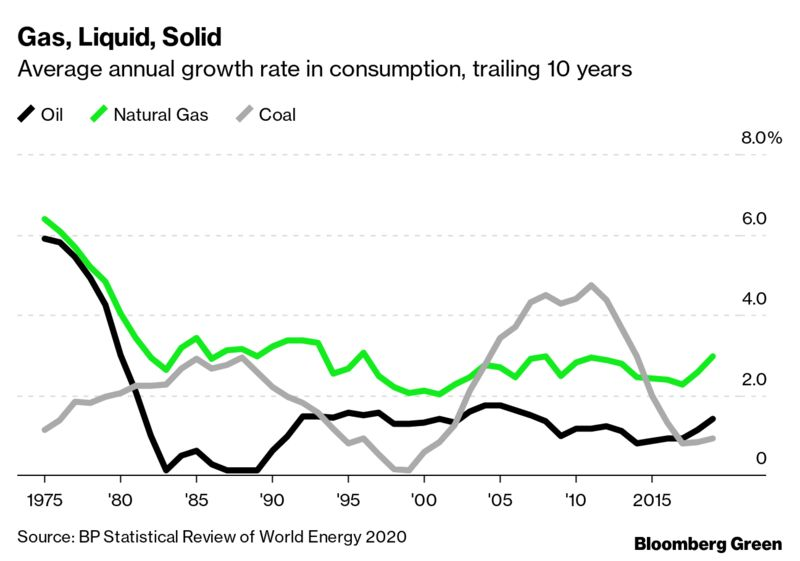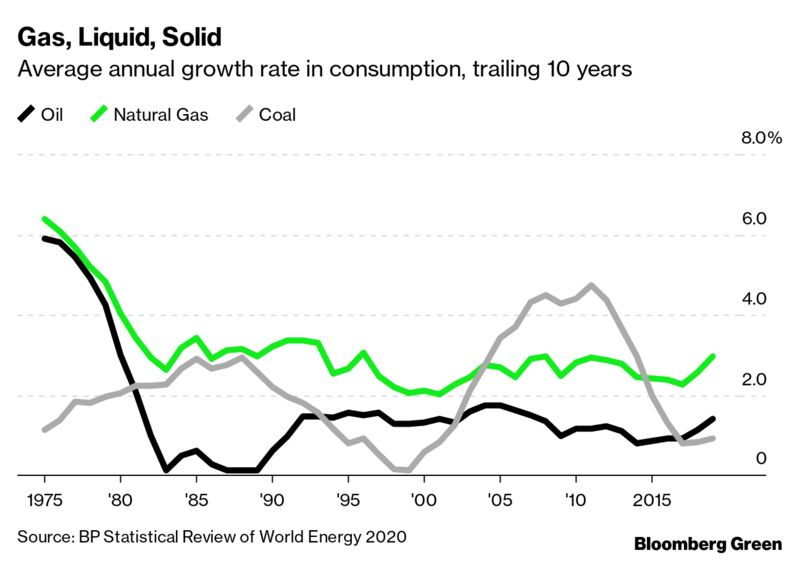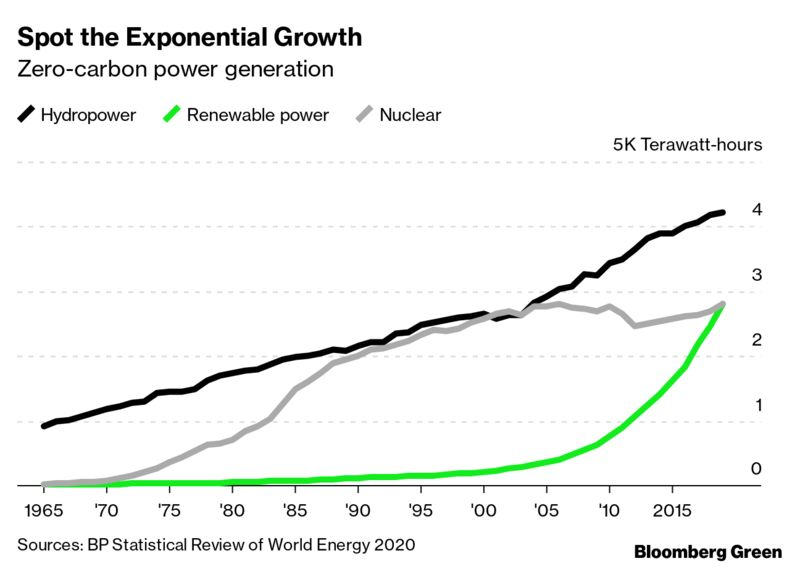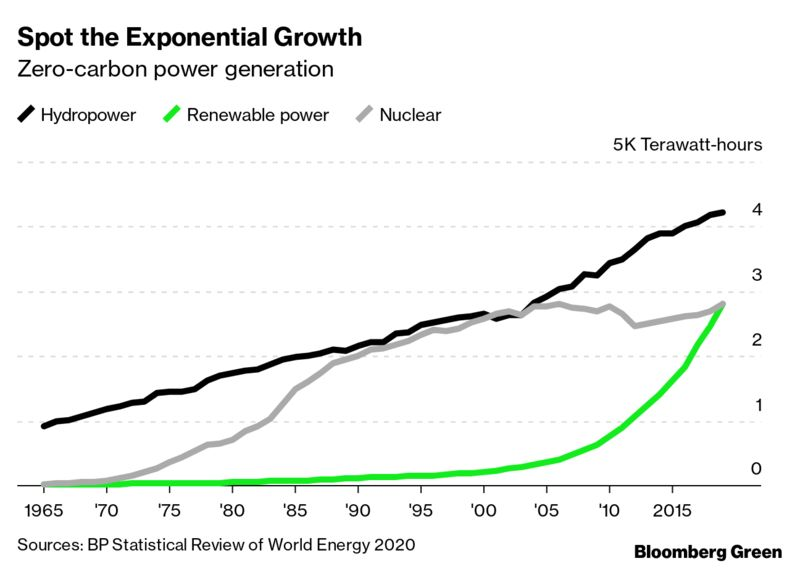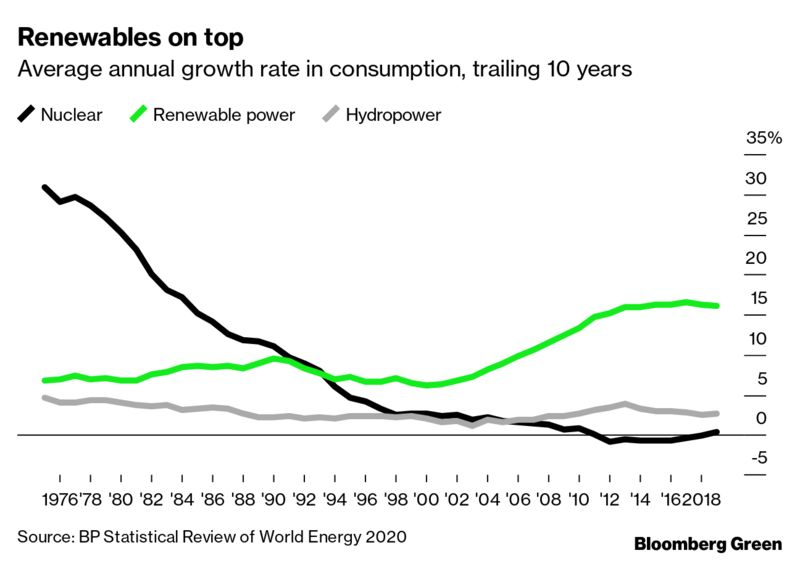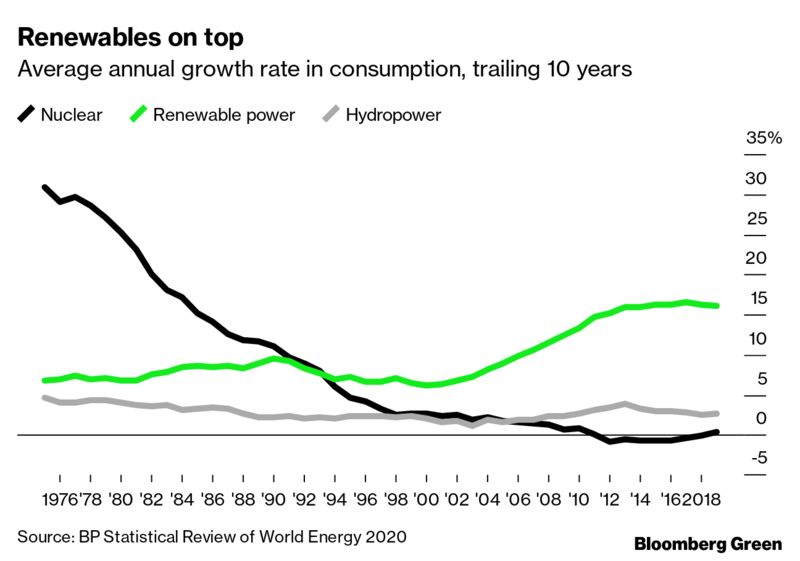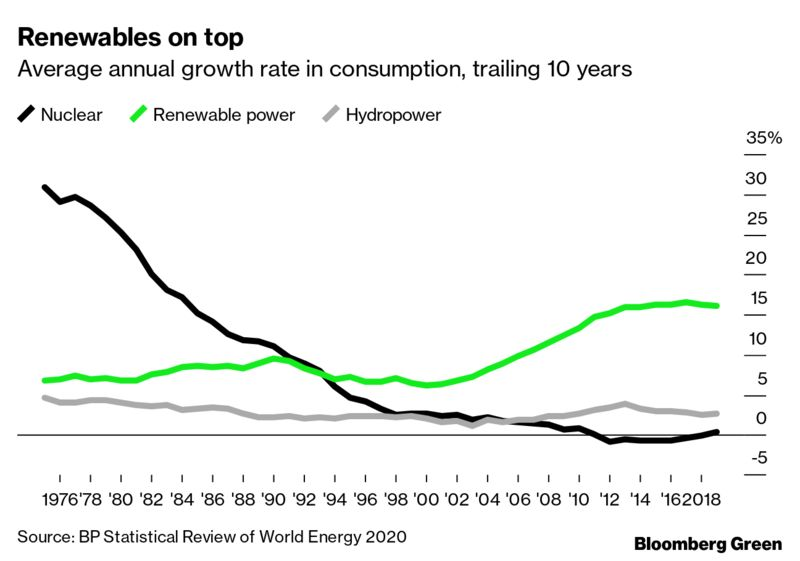It only took 65 years, but the world's pre-eminent data source for historical energy consumption has a new unit: Exajoules, not million tonnes of oil equivalent. A small thing, and a huge thing at the same time. https://www.bloomberg.com/news/articles/2020-06-25/the-case-for-new-green-energy-units?sref=JMv1OWqN
I'm talking about the @bp_plc Statistical Review of World Energy https://www.bp.com/en/global/corporate/energy-economics/statistical-review-of-world-energy.html, published since 1965. 2020's choice of exajoules - and a close look at energy consumption, not just production, reflects today's energy realities and helps prepare for energy's future.
BP has for decades expressed energy consumption in “million tonnes of oil equivalent,” which makes sense for oil, some sense for natural gas and coal, but not very much sense at all for renewable energy. Now, it expresses consumption in exajoules. https://www.bloomberg.com/news/articles/2020-06-25/the-case-for-new-green-energy-units?sref=JMv1OWqN
What's an exajoule? It's the equivalent to 24 million tonnes of oil equivalent and per the great @harrybenham_1, one joule is the energy required to lift an iPhone to your ear. https://twitter.com/harrybenham_1/status/1273229647329800192
Here's why you make that sort of change. The first reason is that millions of tons of oil is not a terribly helpful unit in terms of reflecting what energy goes into. https://www.bloomberg.com/news/articles/2020-06-25/the-case-for-new-green-energy-units?sref=JMv1OWqN
Companies produce oil, but it isn’t a product in its own right; it’s an input to other processes that produce fuels like gasoline, kerosene and diesel along with petrochemical products (as @liamdenning and I explored last month) https://www.bloomberg.com/opinion/articles/2020-05-10/negative-oil-prices-are-positive-for-clean-power?sref=JMv1OWqN
The second, and really important, reason is that we only consume the final result of an energy source. https://www.bloomberg.com/news/articles/2020-06-25/the-case-for-new-green-energy-units?sref=JMv1OWqN
When driving an internal combustion engine car, we consume the end product of a primary energy source (oil) that has gone through a conversion process (refining) to become a fuel that we then burn (gasoline or diesel) that in turn mostly makes waste heat https://www.bloomberg.com/news/articles/2020-06-25/the-case-for-new-green-energy-units?sref=JMv1OWqN
We’re only consuming a fraction of the primary energy inherent in oil. That’s why exajoules are important; they’re what we consume. https://www.bloomberg.com/news/articles/2020-06-25/the-case-for-new-green-energy-units?sref=JMv1OWqN
Now for the charts. Let's compare the world’s energy not in terms of what gets dug up but in terms of what is ultimately consumed. https://www.bloomberg.com/news/articles/2020-06-25/the-case-for-new-green-energy-units?sref=JMv1OWqN
For fuels, we’ll use exajoules. For renewable energy and hydropower (which use no fuel) and nuclear power (which uses fuel, but doesn’t emit anything), we’ll use terawatt-hours of electricity. https://www.bloomberg.com/news/articles/2020-06-25/the-case-for-new-green-energy-units?sref=JMv1OWqN
We consumed just under 500 exajoules of oil, gas and coal last year, more than three times as much as we did in 1965. For a scale comparison, we also consumed about 88 exajoules of zero-carbon electricity last year.
These are big numbers, but they’re not growing that much. The average growth rate in oil consumption is less than 2% in the last decade; for coal, it’s less than 1%. https://www.bloomberg.com/news/articles/2020-06-25/the-case-for-new-green-energy-units?sref=JMv1OWqN
Coal’s growth—driven by China and to a lesser extent India—looks to be a thing of the past, while oil’s growth is debatable. Gas looks steady, and much of its growth comes at the expense of coal. https://www.bloomberg.com/news/articles/2020-06-25/the-case-for-new-green-energy-units?sref=JMv1OWqN
Now for zero-carbon electricity, expressed in terawatt-hours: Hydropower is a fairly steady line up; nuclear plateaued but has returned to growth in the past decade, largely thanks to China. https://www.bloomberg.com/news/articles/2020-06-25/the-case-for-new-green-energy-units?sref=JMv1OWqN
Renewables are a line of the sort that shows up in pitch decks: a hockey stick accelerating upwards (and passing nuclear). It is exponential growth, and to channel @azeem, you should take an exponential view of it too. https://www.bloomberg.com/news/articles/2020-06-25/the-case-for-new-green-energy-units?sref=JMv1OWqN
Now for the growth rates. Four decades ago, nuclear power was growing at a pace (more than 30% per year) that had total nuclear output doubling in less than three years. It's only barely above zero now. https://www.bloomberg.com/news/articles/2020-06-25/the-case-for-new-green-energy-units?sref=JMv1OWqN
Hydro, likewise, doesn’t look like it’s growing much but is actually growing at a similar rate to natural gas. hen there is renewable power. https://www.bloomberg.com/news/articles/2020-06-25/the-case-for-new-green-energy-units?sref=JMv1OWqN
renewable power, managed quite a feat for most of this century: growing at an increasing rate. At its current 10-year average annual growth rate of 16%, total renewable power generation will double in less than five years. https://www.bloomberg.com/news/articles/2020-06-25/the-case-for-new-green-energy-units?sref=JMv1OWqN
Unit choice may seem minor, but it has major implications for how we think of energy. Units of consumption, not production, show us what we actually use; growth rates show us where the system is dynamic, where it is static, and where it is shrinking. https://www.bloomberg.com/news/articles/2020-06-25/the-case-for-new-green-energy-units?sref=JMv1OWqN
These are new units for a new world, where renewables are not only the fastest-growing new source of energy, but also the single largest contributor to meeting new energy demand https://www.bloomberg.com/news/articles/2020-06-25/the-case-for-new-green-energy-units?sref=JMv1OWqN /end

 Read on Twitter
Read on Twitter